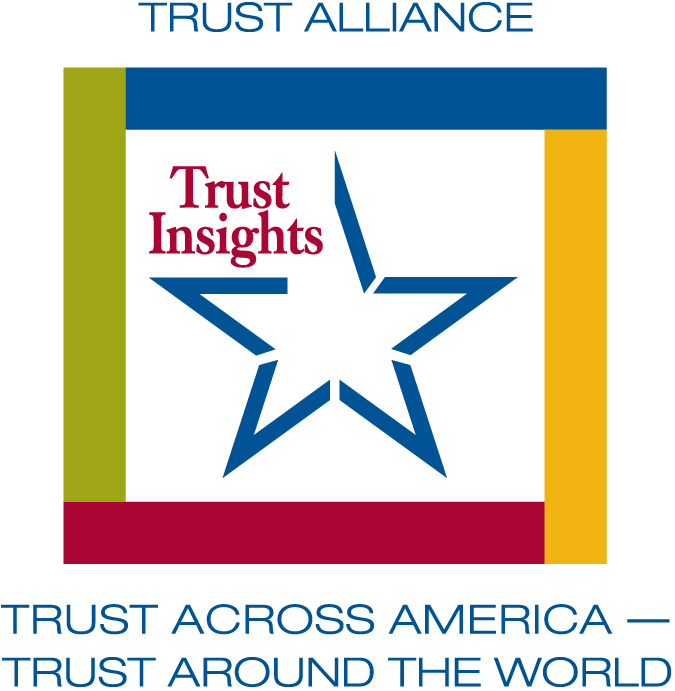 Building trust in policing requires both trustworthy and collaborative community leadership and teamwork. Barbara Brooks Kimmel
Building trust in policing requires both trustworthy and collaborative community leadership and teamwork. Barbara Brooks Kimmel
Police chiefs are not solely responsible for building trust with their communities. They are part of a team. Just like a large corporation, the police department represents only one silo in the organization. They happen to also be the group subject to the most community exposure. In other words, it’s harder for the police department to hide behind a veil of secrecy, especially in cases involving misconduct, as we have recently witnessed. If you believe in the saying “The fish rots from the head,” you would be hard pressed to find an untrustworthy police chief working as part of a well-functioning team alongside a trustworthy mayor.
The following is taken from a recently updated report written by Trust Across America called Building Trust in Community Leadership, and originally published in 2013. It provides insights from top subject matter experts with whom we have worked over the years.
At a minimum….
The following are quick guiding principles in building and maintaining trust for community leaders:
Mayor
Public confidence in the integrity of elected officials is the cornerstone of our democratic representative system of governance. As the highest-ranking elected official of its municipal town or city, the Office of the Mayor is charged with the trust, wellbeing, security, and prosperity of its citizens and community. The Office of the Mayor should perform its responsibilities with the highest sense of ethical leadership, integrity and competence. Each Mayor’s Office should develop, implement and monitor a set of Guiding Principles of Integrity that is tailored to its unique mandate and responsibilities. Donna C. Boehme, Compliance Strategists
(This short news clip provides a timely example of a Mayor who is talking about fortifying trust between community, police and local government.) Thanks Mayor Terry Short!
Town Manager
Today more than half of U.S. cities with a population of more than 10,000—and an increasing number of counties—are run by a combination of appointed professional administrators and elected officials.
Trust is both the foundation and result of ethical leadership, and the manager must seek to create trust between himself and (1) the municipal employees, (2) his elected board, and (3) the community. He can only do this one-day at a time as he sets examples for all other employees to follow, and public policy for the elected board to adopt. His decisions on hiring, promotions, municipal services, and public policy must begin with transparency, and reflect his unbiased opinions on how municipalities provide public services to its citizens. David L. Woglom, Lafayette College
Chief of Police
An trustworthy policing leader creates and maintains a comprehensive values-based risk-management program that:
-
- Is based on clear, practical, effective and fair policies and practices to identify, prevent and detect illegal, unethical and unprofessional conduct.
- Assures that, if improper conduct occurs, prompt and appropriate remedial actions are taken to prevent future misconduct and to protect and enhance the agency’s credibility and reputation. Michael Josephson, Josephson Institute
Head of Emergency Management
In emergency management the single most important issue that comes up again and again is the need for individual relationships to be in place before there is a disaster. The criticality of these personal connections cannot be over emphasized. One illustrative mantra that is shared is this, “If you see people exchanging business cards at the scene of an incident; you know it won’t go well.”
In reality while it sounds like relationships are key, the real shortfall that dooms projects, programs and regional efforts is a lack of trust between the individual players. Trust then is the ultimate goal and how you get there is a critical path to be followed. Eric Holdeman, Eric Holdeman & Associates
Superintendent of Schools
Few would argue that our education system must transform if we are to truly serve the needs of our students into the future. Now more than ever, the foundation for an educational leader’s strength comes from their trustworthiness and their ability to build trust among others. Trust is no longer assumed based on position and credentials, but rather must be built based on the quality of relationships. This requires a shift in leadership approach from one of command and control to one of collaboration. Susan Mazza
To obtain a copy of the complete 17- page report including trust-building action plans for the job functions mentioned above, as well as other community leaders, please click here.
Before you leave, Tap Into Trust and complete our 1 minute/1 question quiz. Find out how the level of trust in your workplace compares to hundreds of others.
Have you reviewed how our workshops are helping teams and organizations just like yours elevate trust? Schedule an ONLINE webinar today.
Did you miss our previous 2020 Trust Insights? Access them at this link.
Contact us for more information on elevating trust on your team or in your organization or email me directly:
Copyright 2020, Next Decade, Inc.


Recent Comments